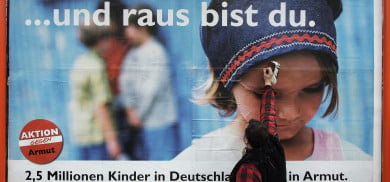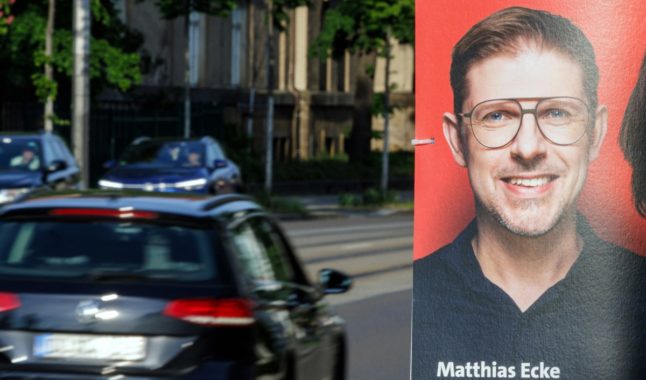The report found that 10 percent of children raised by a single parent – whether mother or father – suffer sustained poverty.
“If parents have work, that is the best way the state has of preventing poverty,” said German family minister Ursula von der Leyen, a Christian Democrat, who presented the report alongside UNICEF officials in Berlin.
Von der Leyen called for a combination of child support payments and more childcare opportunities for children under the age of three.
German children growing up on the wrong side of the income gap require emotional and educational support as well as funding, UNICEF officials said, urging federal, state and local officials to work together on programs for needy children.
“Policy must overcome an approach that has been splintered into departments and put the best interests children first in all the facets of their lives,” the report’s author, Hans Bertram, said in a statement.
The report found that 15 percent of German children between three and 17 years of age display behavioural problems. Seventeen percent of children in that age group are overweight, according to the report. And more than 20 percent of German children between the ages of 11 and 17 years old smoke – more than in any other industrialized country.
UNICEF also found inequality in the German educational system – but found that even as weaker students were marginalized, gifted students were not given enough opportunity.
Meanwhile, children of immigrant families are less likely to go to kindergarten and more likely to attend a non-university track high school. Seventeen percent of them did not graduate.
ddp/dpa



 Please whitelist us to continue reading.
Please whitelist us to continue reading.